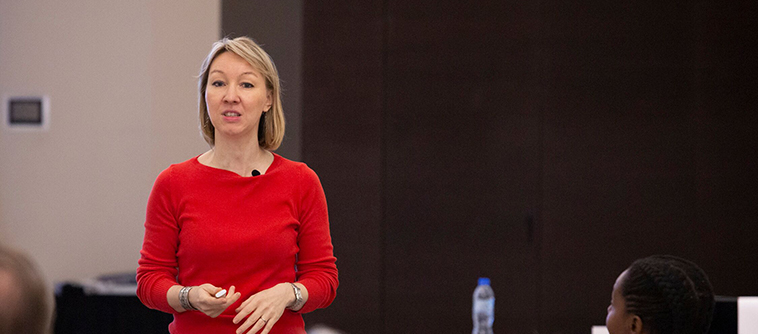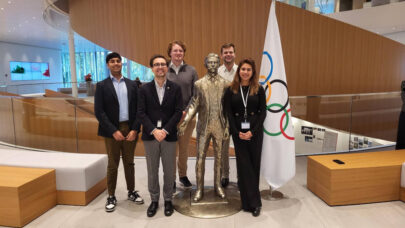Before asking yourself who you are and who you want to be as a leader, every manager needs to understand how their natural personality traits influence the way they approach leadership, said Professor Toegel.
What is personality?
The five personality traits described by theory are extraversion, agreeableness, openness, conscientiousness, and emotionality.
Each of these elements differs from person to person, influencing how we think and behave. This combination ultimately defines our career paths, how we rise through the ranks, and the way we lead and manage others.
How does this work in practice?
Let’s think of personality in the context of a one-off event which triggers a reaction that, in turn, shapes our behavior.
For example, no one enjoys the experience of waiting to board a plane, but our personality will influence how strongly we feel that emotion, from mild annoyance to anger.
Being aware of our own strengths and weaknesses – and how we label our different emotions – is critical, especially when it comes to implementing change.
You can’t change your DNA, but you can change
What if you want to change your personality? Can the right approach, effort and tenacity lead to real personality change, or are leaders stuck with rigid and undesirable traits that hold us back from achieving our goals?
Many of us long to change certain elements of our personalities. Introverts, for example, often wish they were more outgoing and talkative, while extroverts may wish they could keep their cool in emotionally-charged situations.
Toegel says making real and lasting changes can be exceedingly difficult: our personalities are relatively fixed and stable throughout life from a young age.
However, leaders can change the behavior patterns, habits, and beliefs that lurk under the surface of the five main personality traits.
What is the ideal leadership profile?
There is no perfect formula when it comes to personality traits, Toegel says. Every strength in a person’s profile can be perceived as a weakness in certain contexts, and vice-versa.
For example, change can provoke many different reactions. For some, change can be exciting, but others view change as an unwelcome disruption or threat. Change in an organization is as much about engaging and persuading people who prefer stability as it is about involving people who are open to something new.
Similarly, successful leaders can be introverts or extroverts. Every strong leader displays many different personality traits: there are lots of leadership styles that work in different situations.
Build the right conditions
Different environments are home to many different personality traits, so it is vital to create an environment of trust and safety for teams.
Take the example of Google.
In 2012, the tech giant embarked on a huge company-wide initiative – Project Aristotle – to study hundreds of its teams and figure out why some failed while others succeeded.
Ultimately, researchers concluded that teams work well when there is interdependence; when there is space for different personalities and an environment where it is acceptable to fail.
Trust is king
There has to be mutual trust in a team. The more we share, the more we trust each other. Google’s data indicated that psychological safety, more than anything else, was critical to making a team work.
All successful leaders find ways to make communication and empathy a critical building block of their teams. This helps to involve and assuage individual personalities while encouraging respect and collaboration among team members.
Knowing who you are and what kind of personality you have – and how that influences your decisions and actions in a team – is a crucial step towards becoming a good leader and effecting change in an organization.




